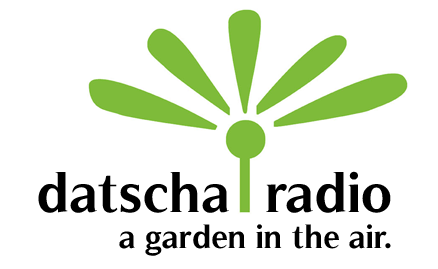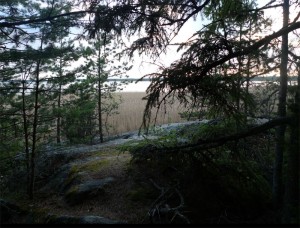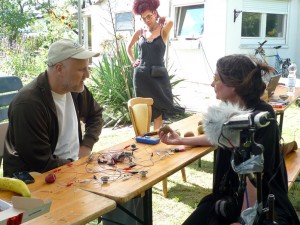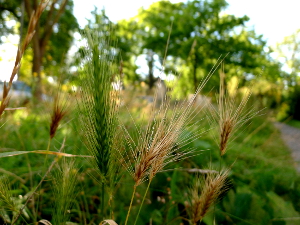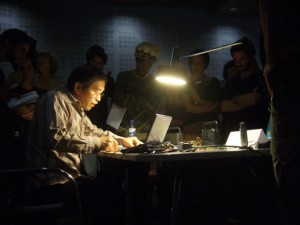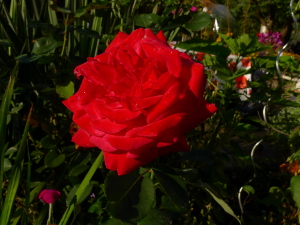Fresh Music for Rotten Vegetables Fruit by and with Karl Heinz Jeron
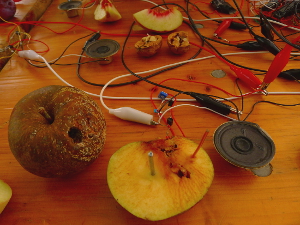
Fallen fruit on Datscha-Radio garden’s grounds. Should we dump them in the composter? Good idea – but today we’ve got a better one. For each rotting apple, each worm-bitten plum has hidden talents. Musical talents indeed! And Karl Heinz Jeron will show us how to bring these talents on stage.
Obviously, his project “Fresh Music For Rotten Vegetables” has been conceived for the urban buy’n’throwaway society rather than for a garden: Those who participate in one of his Fresh Music workshops will first of all be sent to the supermarket to get some veggies. However, not to buy them. Instead, they have to ask for those greens that have been sorted out already because they seem not attractrive enough anymore to be sold – while, as we should add, usually still consumable and ready-to-become part of a delicious meal. Yet in this case, they will come up with an even better talent…
Thus, hush hush to the next deli, to the market or the nice little restaurant round the corner. Or ask your neighbour. Or would it make sense to take a look in your own kitchen? Well: To re-think your own practice is nice – talk to others about the sad fate of despised nutrition carriers is even better. Who knows, perhaps they’ll join us for what’s next.
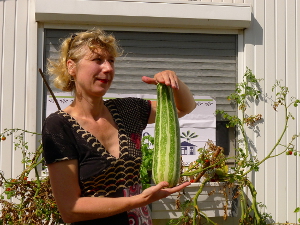
For the Datscha-Radio garden, however – with all its wonderfull trees full of plums and apples and all the beds overloaded with fresh veggies providing rich vitamin meals for all of us every day, so bringing whatever kind of foreign fruit to the garden would seem ridiculous – we’ll have to adapt the concept. We’ll ask the neightbours for fallen fruit. And we’ll also collect some in the Datscha garden. Fruit, for at least today rotting veggies are not available – look at the grand zucchini Ms. Schaffnerin found instead! Yes, this will go to the kitchen later and become part of a delicious dinner. What a pity: No rotten parts, no music (ok, it would work with fresh fruit as well – but that’d be not fresh music for rotten veggies, right?).
Ready to start? We are. For apart from the fruit, Karl Heinz Jeron has brought everything to garden we’ll need. And now he’ll show everybody who always wanted to measure up with the First Vienna Vegetable Orchestra launch a juicy fruit band how it works…
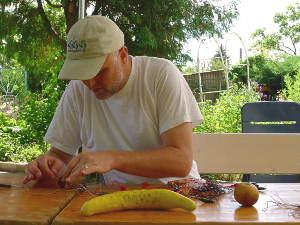
While Karl Heinz is cutting apples, placing plums and other pieces people have brought to the garden table, putting a zinc and a copper rod into each of the fruit, then wiring them and connecting everything with speakers and other stuff, we’re posing curious questions: What is this good for? Why that? What if… ah, and what will be the results? But hey, we can already listen to the latter. Indeed, these fruit are extraordinary talented! They are generating sounds!
However, for sure not because the maggots have started to sing. But because the fruit are feeding the circuit with energy (that’s what fruit are supposed to do, also when consumed by humanimals, right?): Each fruit has become a battery – a principly we should remember from school lessons, yes: the good old lemon battery (yet Karl Heinz can confirm that potatoes work even better).
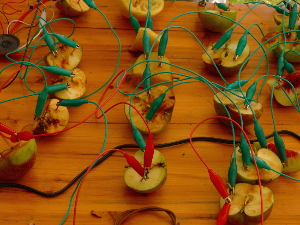
Put in parallel and connected in series, step by step our fruit battery is growing to a symphony orchestra. Indeed, meanwhile the sounds have become louder, and the composition has become quite articulate and rich. Thus we finish our talk about the idea of punk (see the title of the piece, an hommage to the Dead Kennedys and their legendary first album, “Fresh Fruit for Rotting Vegetables” – to which the Datscha-Radio version fits even better), about post-industrial (for we’ve not played Dead Kennedys, but a piece by Throbbing Gristle as the intro for the show), about aleatorics, chance music and John Cage (a curious cook himself and thus perfectly fitting into our table talk), about DIY, recycling, batteries and rotting data, hardware, software – and clear the stage for the orchestra.
Well, also fruit batteries have to die. In our case, it’s the perfect moment – right when we have to close the show. And while the next programme is starting, Karl Heinz is switching to the kitchen – creating from Ms Schaffnerin’s giant zucchini an absolutely declicious dinner for us. (Yes, he is a talented cook – we should have known that anyway from some of his earlier projects. But now our stomach knows as well…)
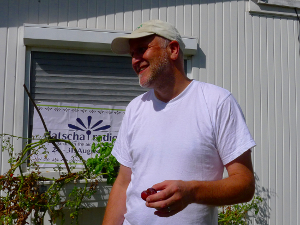
Great many thanks to Karl Heinz Jeron for his radiophonic live workshop on “Fresh Music for Rotten Vegetables Fruit”, the table talk – and the delicious zucchini dinner in the Datscha-Radio garden.
Karl Heinz Jeron is an artist living and working in Berlin. Find out more about “Fresh Music For Rotten Vegetables” and his other projects by visiting his hompage.
[
Pictures: Only five from presumably more than hundred (yes, we’re serious) – that will need another time to be sorted, formatted and uploaded to a forthcoming gallery (thx for your patience) –
VK cc-by-nc-sa]
Read More
